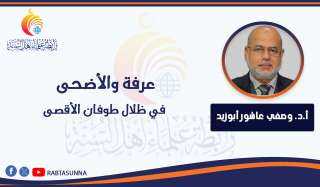أخلاق المسلم فى التجارة


أخلاق المسلم في التجارة
بقلم الشيخ عبدالعزيز رجب
عضو الاتحاد العالمي لعلماء المسلمين
بثلاث لغات (العربية – الإنجليزية – الإيطالية)
الحمد لله، والصلاة والسلام على رسول الله، صلى الله عليه وعلى آله وصحبه ومن والاه، وبعد.
التجارة في الإسلام لا تحكمها القوانين والقواعد الأصولية والفقهية والوضعية وفقط، وإنما تحكمها كذلك الضوابط والقيم الأخلاقية والتي ينبغي علينا التحلي بها في بيعنا وشرائنا وتعاملاتنا كلها، فالبيع والشراء نوع من التعاون، ولا بد أن يكون على البر والتقوى كما قال سبحانه: }وَتَعَاوَنُوا عَلَى الْبِرِّ وَالتَّقْوَى وَلَا تَعَاوَنُوا عَلَى الْإِثْمِ وَالْعُدْوَانِ{ [المائدة:2]
وقد وضع الإسلام للتجارة ضوابط أخلاقية، وسلوكيات اجتماعية، وآداباً إنسانية ينبغي التمسك بها والحفاظ عليها، بها ينصلح حال البلاد والعباد، ومن هذه القيم الأخلاقية:
حسن النية، فالنية إذا كانت حسنة، يسر الله لك وبارك في بيعك، وإذا كانت سيئة، ضاعت تجارتك، ولو كنت أذكى الناس، فعن أبي هريرة –رضي الله عنه- عن النبي -صلى الله عليه وسلم- قال: «مَنْ أَخَذَ أَمْوَالَ النَّاسِ يُرِيدُ أَدَاءَهَا أَدَّى الله عَنْهُ، وَمَنْ أَخَذَهَا يُرِيدُ إِتْلاَفَهَا أَتْلَفَهُ الله». أخرجه: البخاري وأحمد وهو صحيح.
ويقول أبو حامد الغزالي: "حسن النية والعقيدة في ابتداء التجارة، فلينوِ بها الاستعفافَ عن السؤال، وكفَّ الطمع عن الناس، استغناءً بالحلال عنهم، واستعانةً بما يكسبه على الدين، وقياماً بكفاية العيال، ليكون من جملة المجاهدين به" (إحياء علوم الدين: 2/84)
ومنها دعاء دخول السوق، كما جاء عن عمر بن الخطاب –رضي الله عنه-، عن النبي -صلى الله عليه وسلم- قال: «مَنْ قَالَ حِينَ يَدْخُلُ السُّوقَ: لاَ إِلَهَ إِلاَّ اللهُ، وَحْدَهُ لاَ شَرِيكَ لَهُ، لَهُ الْمُلْكُ وَلَهُ الْحَمْدُ، يُحْيِي وَيُمِيتُ، وَهُوَ حَيٌّ لاَ يَمُوتُ، بِيَدِهِ الْخَيْرُ كُلُّهُ، وَهُوَ عَلَى كُلِّ شَيْءٍ قَدِيرٌ، كَتَبَ اللهُ لَهُ أَلْفَ أَلْفِ حَسَنَةٍ، وَمَحَا عَنْهُ أَلْفَ أَلْفِ سَيِّئَةٍ، وَبَنَى لَهُ بَيْتًا فِي الْجَنَّةِ».أخرجه: ابن ماجة والحاكم والترمذي بسند صحيح.
ثم التحلي بالأخلاق الحميدة كلها في التجارة كالصدق، كما روي عن أبي سعيد الخدري –رضي الله عنه- عن النبي -صلى الله عليه وسلم- قال: «التَّاجِرُ الصَّدُوقُ الأَمِينُ مع النَّبيِّينَ والصِّدِّيقِينَ والشُّهداءِ». أخرجه: الحاكم والترمذي بسند حسن.
وعَن حكيم بن حزام –رضي الله عنه- عن النبي -صلى الله عليه وسلم- قال: «البَيِّعانِ بالخِيارِ مَا لَمْ يَتَفَرَّقا فَإِن صَدَقا وَبَيَّنا بُورِكَ لَهُما فِي بَيْعِهِما وإنْ كَتَما وَكَذَبا مُحِقَتْ بَرَكَةُ بيعهما". متفق عليه.
وعَن رِفَاعَة -رضي الله عنه- عن النبي -صلى الله عليه وسلم- قال: «يَا مَعْشَرَ التُّجَّارِ! إِنَّ التُّجَّارَ يُبْعَثُونَ يَوْمَ الْقِيَامَةِ فُجَّاراً إِلاَّ مَنِ اتَّقَى الله وَبَرَّ وَصَدَقَ». أخرجه: ابن حبان والترمذي، وقال حديث حسن صحيح.
والسماحة في البيع والشراء، فعن جابر بن عبد الله -رضي الله عنهما- عن النبي -صلى الله عليه وسلم- قال: «رحم الله عبدًا سمحا إذا باع سمحا إذا اشترى سمحا إذا قضى سمحا إذا اقتضى». أخرجه: البخاري والبيهقي بسند صحيح
وإنظار المعسر كما قال الله تعالى: }وَإِنْ كَانَ ذُو عُسْرَةٍ فَنَظِرَةٌ إِلَى مَيْسَرَةٍ وَأَنْ تَصَدَّقُوا خَيْرٌ لَكُمْ إِنْ كُنتُمْ تَعْلَمُونَ{ [البقرة:280[
وقد روي عن أبي هريرة –رضي الله عنه- عن النبي -صلى الله عليه وسلم- قال: «مَنْ نَفَّسَ عَنْ مُؤْمِنٍ كُرْبَةً مِنْ كُرَبِ الدُّنْيَا نَفَّسَ الله عَنْهُ كُرْبَةً مِنْ كُرَبِ يَوْمِ الْقِيَامَةِ وَمَنْ يَسَّرَ عَلَى مُعْسِرٍ يسَّرَ الله عَلَيْهِ فِي الدُّنْيَا وَالآخِرَةِ». أخرجه: مسلم والترمذي بسند صحيح
وعن حذيفة –رضي الله عنه- عن النبي -صلى الله عليه وسلم- قال: «تَلَقَّتِ الْمَلاَئِكَةُ رُوحَ رَجُلٍ مِمَّنْ كَانَ قَبْلَكُمْ. فَقَالُوا: أعَمِلْتَ مِنَ الْخَيْرِ شَيْئًا؟ قَالَ: لاَ. قَالُوا: تَذَكَّرْ. قَالَ: كُنْتُ أُدَايِنُ النَّاسَ، فَآمُرُ فِتْيَانِي أَنْ يُنْظِرُوا الْمُعْسِرَ، وَيتَجَوَّزُوا عَنِ الْمُوسِرِ. قَالَ: قَالَ اللَّهُ عَزَّ وَجَلَّ: تَجَوَّزُوا عنه". متفق عليه.
وإقالة النادم على بيعته، كما روي عن أبي هريرة –رضي الله عنه- عن النبي -صلى الله عليه وسلم- قال: «منْ أقالَ نَادِمًا بَيعَتهُ، أَقَاله اللَّهُ عثرته يومَ القيامة". أخرجه: أبو داود والبيهقي بسند صحيح.
ومنها الوفاء بالوعد، كما قال تعالى: }يَا أَيُّهَا الَّذِينَ ءَامَنُوا أَوْفُوا بِالْعُقُودِ{ [المائدة:1]
وقد ذم بعض المنافقين الذين لم يفوا بوعودهم كما في قوله تعالى:} وَمِنْهُمْ مَنْ عَاهَدَ اللَّهَ لَئِنْ ءَاتَانَا مِنْ فَضْلِهِ لَنَصَّدَّقَنَّ وَلَنَكُونَنَّ مِنَ الصَّالِحِينَ *فَلَمَّا ءَاتَاهُمْ مِنْ فَضْلِهِ بَخِلُوا بِهِ وَتَوَلَّوْا وَهُمْ مُعْرِضُونَ* فَأَعْقَبَهُمْ نِفَاقًا فِي قُلُوبِهِمْ إِلَى يَوْمِ يَلْقَوْنَهُ بِمَا أَخْلَفُوا اللَّهَ مَا وَعَدُوهُ وَبِمَا كَانُوا يَكْذِبُونَ{ [ التوبة75:77].
ومن الأخلاق والآداب الإسلامية في التجارة، البعد عن كل الأخلاق الذميمة التي نهى عنها الإسلام الحنيف،
فيبتعد عن الحرام وخاصة الربا، فعن جابر بن عبد الله -رضي الله عنهما- عن النبي -صلى الله عليه وسلم- قال: «لعن الله آكل الربا ومؤكله وشاهديه وكاتبه هم فيه سواء». أخرجه: مسلم والترمذي بسند حسن صحيح.
ويبتعد عن الغش في البيع بكل صوره، كما قال تعالى:} وَأَقِيمُوا الْوَزْنَ بِالْقِسْطِ وَلَا تُخْسِرُوا الْمِيزَانَ{ [الرحمن:9]، وقال:} وَيْلٌ لِلْمُطَفِّفِينَ الَّذِينَ إِذَا اكْتَالُوا عَلَى النَّاسِ يَسْتَوْفُونَ وَإِذَا كَالُوهُمْ أَوْ وَزَنُوهُمْ يُخْسِرُونَ أَلَا يَظُنُّ أُولَئِكَ أَنَّهُمْ مَبْعُوثُونَ لِيَوْمٍ عَظِيمٍ يَوْمَ يَقُومُ النَّاسُ لِرَبِّ الْعَالَمِينَ{ [المطففين 1-6].
وعن أبي هريرة –رضي الله عنه- عن النبي -صلى الله عليه وسلم- قال: «مَن غشَّنا فليس منَّا». أخرجه: مسلم، وابن ماجه، والبخاري في الأدب المفرد بسند صحيح.
ومن صور الغش: بيع المواد الفاسدة والمنتهية الصلاحية، والتلاعب في الأوزان، وتسويق بضاعة رديئة على أنها بضاعة جيدة، وبيع المواد الضارة بالصحة، ووصف مكونات المواد المصنعة بأوصاف غير حقيقية...
ومن الغش أيضا شراء الأشياء المسروقة، فقد روي عن أبي هريرة –رضي الله عنه- أن النبي -صلى الله عليه وسلم- قال: «مَنِ اشْتَرَى سَرِقَةً وَهُوَ يَعْلَمُ أَنَّهَا سَرِقَةٌ فَقَدْ شَرِكَ فِي عَارِهَا وَإِثْمِهَا». أخرجه: الحاكم والبيهقي، وسنده مختلف فيه.
ويبتعد عن كثرة الحلف، كما قال تعالى }إِنَّ الَّذِينَ يَشْتَرُونَ بِعَهْدِ اللَّهِ وَأَيْمَانِهِمْ ثَمَنًا قَلِيلًا{[آل عمران: 77]
وعن أبي هريرة –رضي الله عنه- عن النبي -صلى الله عليه وسلم- قال: «الْحَلِفُ مُنَفِّقَةٌ لِلسِّلْعَةِ، مُمْحِقَةٌ لِلْبَرَكَةِ». متفق عليه.
ويبتعد عن احتكار السلع، كما روي عن أبي هريرة –رضي الله عنه- عن النبي -صلى الله عليه وسلم- قال: «مَنِ احْتَكَرَ حُكْرَةً يُرِيدُ أَنْ يُغْلِيَ بِهَا على المسلمين فهو خاطئ، وَقَدْ بَرِئَتْ مِنْهُ ذِمَّةُ الله وَرَسُولِهِ». أخرجه: أحمد والحاكم
وعن عمر –رضي الله عنه- عن النبي -صلى الله عليه وسلم- قال: «مَنِ احْتَكَرَ عَلَى المُسْلِمِينَ طَعَامَهُمْ ضَرَبَهُ الله بالجذام والإفلاس». أخرجه: أحمد وابن ماجه حسن.
ثم تعظيم شعائر الله، وخاصة الصلاة وقت البيع، فاترك تجارتك وعملك، واهرع إلى الصلاة، لأن هذا الوقت ملك لله، كما أن المال مال الله، قال تعالى: {يَا أَيُّهَا الَّذِينَ آمَنُوا إِذَا نُودِيَ لِلصَّلَاةِ مِنْ يَوْمِ الْجُمُعَةِ فَاسْعَوْا إِلَى ذِكْرِ اللَّهِ وَذَرُوا الْبَيْعَ ذَلِكُمْ خَيْرٌ لَكُمْ إِنْ كُنْتُمْ تَعْلَمُونَ}(الجمعة: 9).
وأخيرا: تطهير التجارة بالصدقة مما حدث فيها من لغو ونحوه، كما روي عن قيس بن أبي غرزة –رضي الله عنه- عن النبي -صلى الله عليه وسلم- قال: «يَا مَعْشَرَ التُّجَّارَ! إِنَّ الشَّيْطَانَ وَالإِثْمَ يَحْضُرَانِ الْبَيْعَ فَشُوبُوا بَيْعَكُمْ بِالصَّدَقَةِ».أخرجه: الطبراني والترمذي، وقال حسن صحيح.
والحمد لله رب العالمين
******************************
The Muslim's Trading Manners
By: Sheikh Abdelaziz Ragab
All praise is due to Allah alone, and prayer and peace be upon the final Messenger of Allah and his followers.
Trading in Islam is not controlled by laws, Islamic and man-made rules only, but also by values and moral standards, which we must be committed to during all kinds of dealings and acts. Trading is a kind of cooperation, and must be based on what The Almighty Allah says: { 5:2… Help you one another in Al-Birr and At-Taqwa (virtue, righteousness and piety); but do not help one another in sin and transgression…. }
Islam put for trade a set of moral, social behaviors, and human ethical values which must be followed and preserved. This will result in the reform of both the people and the countries.
Some of those values are:
- Good intentions
This will result in facilitating and blessing of the sold merchandise. Otherwise, it will be a loss, even if you were the smartest of men.
* Narrated Abu Huraira (May Allah be pleased with him): The Prophet (ﷺ) said: "Whoever takes the money of the people with the intention of repaying it, Allah will repay it on his behalf, and whoever takes it in order to spoil it, then Allah will spoil him."
* Abu Ahmad Al-Ghazali says: "with good intention and doctrine at the start of trade; a man must seek self-sufficiency, and not ask for money or covet and borrow money from people. He must pay back his debts, and be satisfied with what is sufficient for supporting his family, which will make him like the man who fights in the way of Allah.
-Supplication for going to the market:
It was narrated from Salim bin 'Abdullah bin 'Umar, from his father, that his grandfather told that the Messenger of Allah (ﷺ) said: "Whoever says, when he enters the marketplace: 'La ilaha illallah wahdahu la sharika lahu, lahul-mulk wa lahul-hamdu, yuhyi wa yumitu, wa Huwa hayyun la yamutu, bi yadihil-khairu kulluhu, wa Huwa ala kulli shay’in Qadir (None has the right to be worshiped but Allah alone, with no partner, to Him belongs all sovereignty and to Him is the praise, He gives life and gives death, and He is Ever-Living and does not die; in His Hand is all goodness and He is Able to do all things),' Allah will record for him one million good deeds, and will erase from him one million bad deeds, and will build for him a house in Paradise."
- Good manners:
* It was narrated from Ibn 'Umar that the Messenger of Allah (ﷺ) said: 'The trustworthy, honest Muslim merchant will be with the martyrs on the Day of Resurrection."
* Ibn 'Umar (may Allah be pleased with them) reported Allah's Messenger (ﷺ) as saying: Both parties in a business transaction have the right to annul it, as long as they have not separated; except in transactions, which have been made subject to the right of parties to annul them.
* Narrated Isma'il bin 'Ubaid bin Rifa'ah: via his father, from his grandfather, that he went with the Messenger of Allah (ﷺ) to the Musalla, and he saw the people doing business so he said: 'O people of trade!' and they replied to the Messenger of Allah (ﷺ) turning their necks, and their gazes towards him, and he said: Indeed the merchants will be resurrected on the Day of judgement with the wicked, except the one who has Taqwa of Allah, who behaves charitably, and is truthful.'"
* It was narrated from Jabir bin 'Abdullah that the Messenger of Allah (ﷺ) said: "May Allah have mercy on a person who is lenient when he sells, lenient when he buys, and lenient when he asks for payment."
* Granting time for the debtor who has money: { 2: 280. And if the debtor is in a hard time (has no money), then grant him time till it is easy for him to repay, but if you remit it by way of charity, that is better for you if you did but know.}
* Abu Hurairah (May Allah be pleased with him) narrated that the Messenger of Allah (ﷺ) said: “If anyone relieves a Muslim believer from one of the hardships of this worldly life, Allah will relieve him of one of the hardships of the Day of Resurrection. If anyone makes it easy for the one who is indebted to him (while finding it difficult to repay), Allah will make it easy for him in this worldly life and in the Hereafter, and if anyone conceals the faults of a Muslim, Allah will conceal his faults in this world and in the Hereafter. Allah helps His slave as long as he helps his brother.”
* Huthaifah reported Allah's Messenger (ﷺ) as saying: "The angels took away the soul of a person, who had lived among people who were before you. They (the angels) said: Did you do anything good? He said: No. they said: Try to recall. He said: I used to lend to people and order my servants to give respite to one in straitened circumstances and give allowance to the solvent, for Allah, the Exalted and Majestic, said (to the angels): You should ignore (his failing)".
* Rescinding a sale: Narrated Abu Hurayrah: The Prophet (ﷺ) said: If anyone rescinds a sale with a Muslim, Allah will cancel his slip, on the Day of Resurrection.
* Fulfilling obligations: { 5:1. O you who believe! Fulfill (your) obligations.}
The Almighty Allah dispraised the hypocrites who did not go through with their obligations { 9: 75. And of them are some who made a covenant with Allah (saying): "If He bestowed on us of His Bounty, we will verily, give Sadaqah (Zakat and voluntary charity in Allah's Cause) and will be certainly among those who are righteous." 76. Then when He gave them of His Bounty, they became niggardly [refused to pay the Sadaqah (Zakat or voluntary charity)], and turned away, averse.
77. So He punished them by putting hypocrisy into their hearts till the Day whereon they shall meet Him, because they broke that (covenant with Allah) which they had promised Him and because they used to tell lies.}
|
|
|
|





















